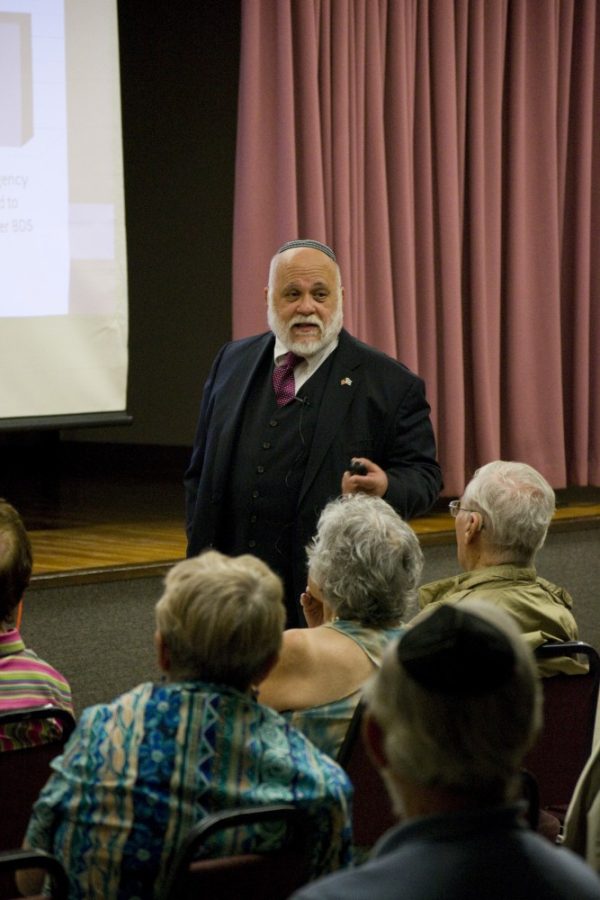Research led by a UA alumnus is addressing perceptions of Israel in universities across the country, and he’s calling the UA a model institution for pro-Israel student initiatives.
Samuel Edelman, an emeritus professor of Jewish and Holocaust Studies at California State University, Chico, presented his research during an event hosted by the UA Center for Judaic Studies.
Edelman’s project interviewed faculty and staff from 34 campuses across the U.S. about their perception of Israel on campus. Some of the feedback was positive while some was negative, but Edelman said implications that groups are anti-Israel will always remain.
Most of the pro-Israel activity on college campuses today is student-centered, Edelman said, but added that Jews still face some issues on campus where they feel that they are being harassed, which leads them to being afraid to express their religion, he said.
While Edelman listed several universities in California that are anti-Israel, he said that the UA is a model program for institutes that support the country and its culture.
“What the staff has done with Jewish Studies at the University of Arizona is a remarkable thing,” Edelman said. “I’m not just a supporter of this, but it is one of the modeled programs in the United States.”
In the conducted research, 90 percent of those interviewed were professors and 10 percent were deans and department chairs. In his survey, Edelman found that 25 percent perceived a positive atmosphere on campus, 15 percent felt a negative impact and 60 percent were apathetic.
Yet within the 60 percent, some felt it was possible for change to happen through a combination of effort, education and activity, Edelman said.
“While there is some negative to the 60 percent of the apathetic campus, there is some possible positive,” Edelman said. “It’s not an area where we can throw our hands up and give up.”
When a Jewish community was perceived to have a strong presence on campus, and was generally in good standing with the university, faculty felt protected and supportive, according to Edelman.
“Strong Israel programs and Jewish studies programs can become world models and protectors for pro-Israel student groups and Jewish student groups,” he said.
Some of the recommendations from the faculty surveyed were to provide more courses on Israel, more joint research between Israel and Americans and better connections with like-minded professors.
Edward Wright, director and professor of Judaic Studies at the UA, said he was pleased with the findings.
“I am very proud of that as a faculty member and as an administrator,” Wright said. “I think we have the right spirit about us; we have the intention of making this a safe and warm academic environment and welcoming place as well.”









